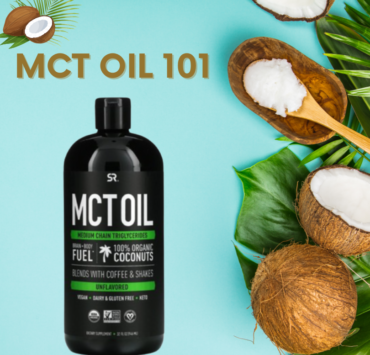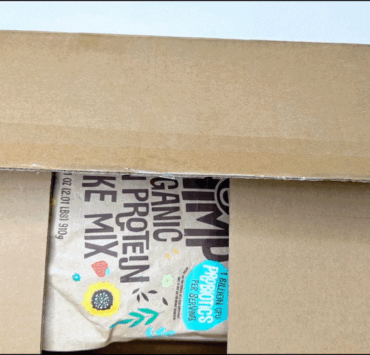Keto Diet Success: 10 Foods You Should Avoid for Best Results!

The ketogenic diet, or Keto diet for short, has gained immense popularity for its ability to promote weight loss and improve overall health. By significantly reducing carbohydrate intake and increasing fat consumption, the body enters a state of ketosis, where it burns fat for fuel instead of carbohydrates. However, to achieve the best results on the Keto diet, it’s important to make mindful food choices. In this post, we will explore 15 foods that should be avoided on the Keto diet to ensure optimal success.
Understanding the Keto Diet
What is the Keto Diet?
The Keto diet is a low-carb, high-fat diet that involves drastically reducing carbohydrate intake and replacing it with healthy fats. By doing so, the body shifts into a metabolic state called ketosis, where it becomes highly efficient at burning fat for energy.
How does the Keto Diet work?
When carbohydrates are limited, the body’s glycogen stores become depleted, leading to a decrease in blood sugar levels. This prompts the liver to produce ketones from fat, which serve as an alternative source of fuel for the body and brain.
The Importance of Food Choices on Keto
The success of the Keto diet relies on maintaining a state of ketosis. Consuming foods high in carbohydrates can disrupt this process by raising blood sugar levels and inhibiting the production of ketones. Therefore, it is crucial to avoid certain foods to stay in ketosis.
Foods to Avoid on the Keto Diet
- High-carb vegetables
Certain vegetables such as potatoes, corn, and carrots are high in carbohydrates and should be limited on the Keto diet. Instead, opt for low-carb alternatives like leafy greens, broccoli, and cauliflower. - Grains and cereals
Grains and cereals like wheat, rice, oats, and barley are rich in carbohydrates and should be avoided. Replace these with low-carb alternatives like almond flour, coconut flour, flaxseed meal, or chia seeds which is a great replacement for oats.. - Sugary foods and beverages
Sweets, candies, sugary drinks, and desserts are loaded with sugar and high in carbs, making them unsuitable for the Keto diet. Choose sugar-free alternatives or naturally sweetened options like stevia or erythritol. - Processed and packaged snacks
Processed snacks like chips, crackers, and cookies often contain hidden carbohydrates and unhealthy fats. Instead, opt for homemade keto-friendly snacks such as nuts, seeds, or kale chips. - Legumes and beans
Legumes and beans, including lentils, chickpeas, and kidney beans, are high in carbohydrates and can disrupt ketosis. Replace them with low-carb alternatives such as tofu, tempeh, or edamame. - High-sugar fruits
Fruits like bananas, grapes, and mangoes are high in natural sugars and carbohydrates, making them unsuitable for the Keto diet. Choose lower-sugar fruits like berries or avocados (great Banana replacement). - Alcohol
Alcoholic beverages contain sugar and can inhibit ketosis. Most cocktails, beers, and sweet wines should be avoided. Opt for spirits like vodka, rum, or tequila mixed with sugar-free mixers instead. - Condiments and sauces with added sugars
Many condiments and sauces, such as ketchup, barbecue sauce, and honey mustard, contain added sugars and should be avoided. Use sugar-free alternatives or make your own keto-friendly versions. - High-carb dairy products
Dairy products like milk, regular yogurt, and sweetened yogurt can be high in carbohydrates. Opt for full-fat dairy products, unsweetened yogurt, or non-dairy alternatives like almond milk or coconut milk. - Vegetable oils and margarine
Vegetable oils and margarine often contain unhealthy fats and should be replaced with healthier options like olive oil, coconut oil, or grass-fed butter.
Choosing the right foods on the Keto diet is essential for achieving the best results. By avoiding high-carb foods, sugary treats, and processed snacks, you can stay in a state of ketosis and optimize your weight loss journey. Remember to focus on whole, unprocessed foods and make mindful choices that align with the principles of the Keto diet.
FAQs
- Can I have cheat days on the Keto Diet? While occasional cheat days may not completely derail your progress, they can disrupt ketosis and make it harder to get back on track. It’s best to limit cheat days or find alternative ways to satisfy cravings without derailing your diet.
- Are all fruits off-limits on the Keto Diet? Not all fruits are off-limits on the Keto diet. Some fruits like berries, avocados, and lemons are lower in carbs and can be enjoyed in moderation. However, high-sugar fruits should be avoided or consumed sparingly.
- Can I have dairy products on the Keto Diet? Yes, you can have dairy products on the Keto diet. However, it’s important to choose full-fat, unsweetened options and monitor your intake as some dairy products can contain hidden sugars and carbs.
- Is it necessary to count calories on the Keto Diet? While the Keto diet primarily focuses on macronutrient ratios, counting calories can still be beneficial, especially if weight loss is a goal. Tracking your calorie intake can help ensure you’re in a calorie deficit while maintaining the appropriate macronutrient balance.
- What can I eat as a substitute for starchy vegetables on Keto? For starchy vegetable substitutes on the Keto diet, you can opt for low-carb alternatives like cauliflower rice, zucchini noodles, or spaghetti squash. These options provide similar textures and can be used in various recipes.




